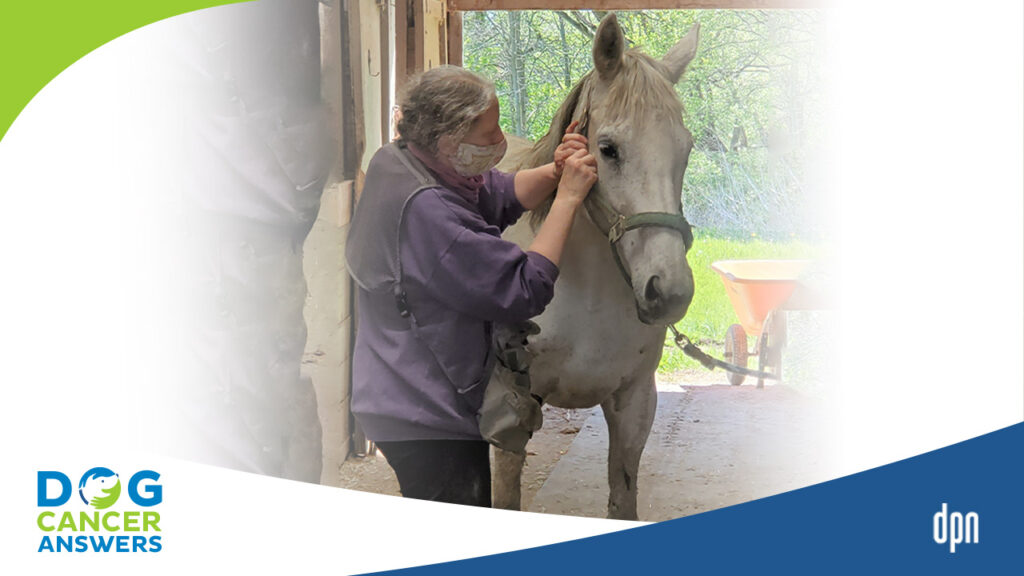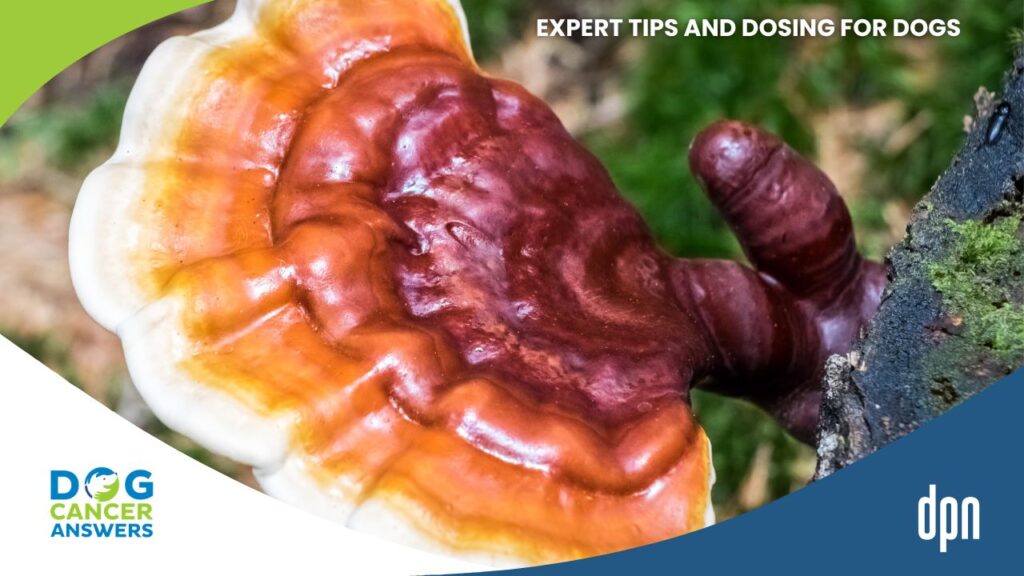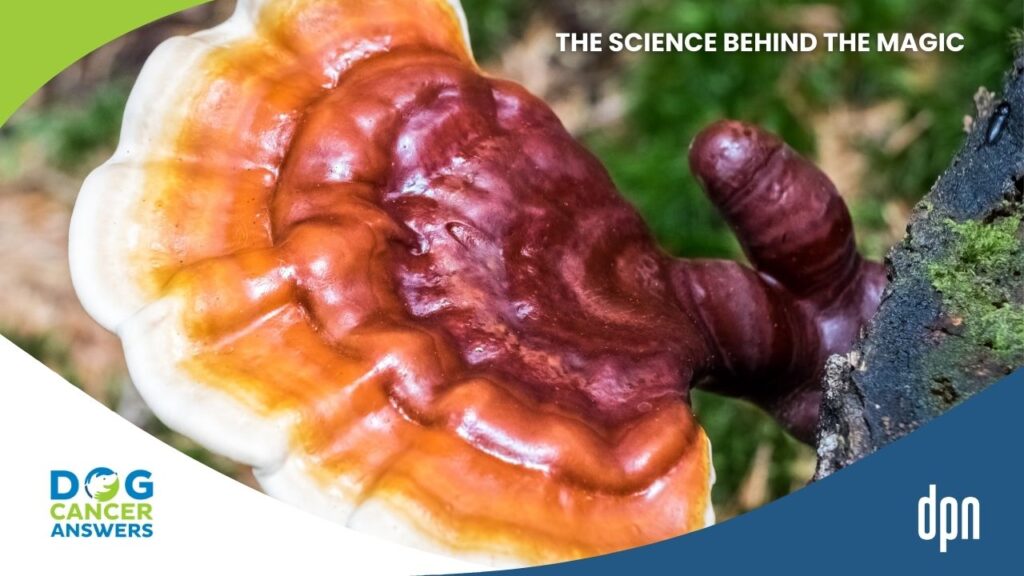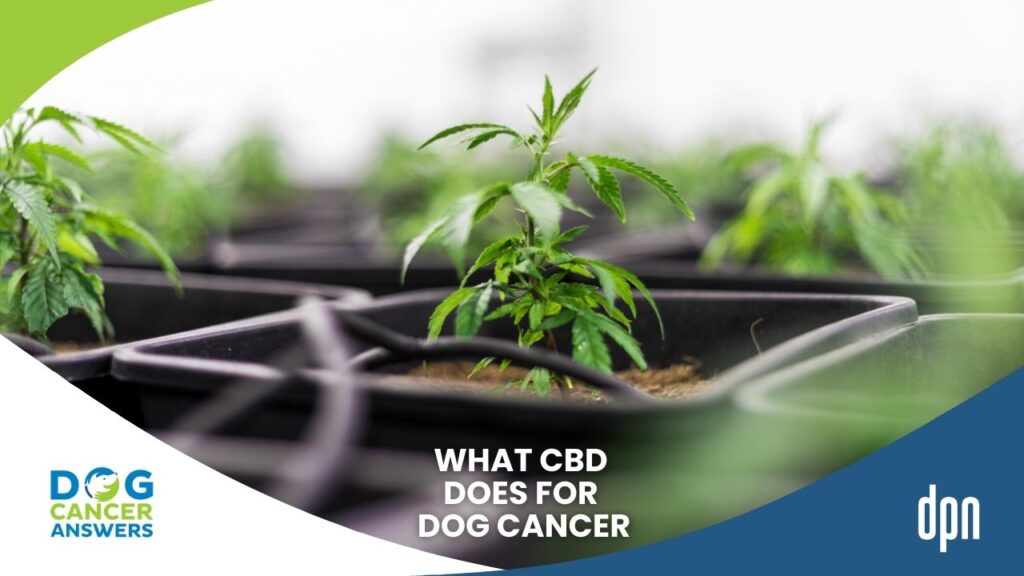>> Dr. Nancy Reese: At those high doses, it’s really not considered a nutrient anymore, but we’re using it just like we would any other drug.
>> Announcer: Welcome to Dog Cancer Answers, where we help you help your dog with cancer. Here’s your host, James Jacobson.
>> James Jacobson: Welcome to Dog Cancer Answers: Today we’re taking a look at plain old vitamin C and asking can it help our dogs with cancer?
This is actually more controversial than you might think, because some folks think that it’s kind of silly to think that a simple vitamin can have a good effect– while others think the idea has merit.
We’re lucky because Dr. Nancy Reese is here with her common sense, research-based, Ph.D-in-epidemiology mindset, and she is going to help us figure out when and why vitamin C might help our dogs.
A listener named Chrystal prompted this episode by calling our Listener Line and leaving her question. I hope that if YOU have a question for one of our veterinarians, you’ll do the same, and I’ll give you the phone number to do that at the end of this show.
But first, let’s get going.
>> Chrystal Fowler: Hi, my name’s Chrystal Fowler. I’m from San Diego, and my dog’s Riley. He recently got diagnosed with grade three sarcoma that was taken out and removed, but we want to do everything possible.
I have seen some research online, and I do know that IV hydration therapy, high-dose vitamin C IVs, are good for slowing down the progression of cancer in humans.
And I wanted to know your feedback for vitamin C IV for dogs. Just so happens I own a business for that for humans, IV hydration therapy, so I’m curious for feedback on dogs and dosage, if you have any recommendations, um, is there, what’s the downside? I try to do everything possible for him.
Thanks so much and have a great day, appreciate your guys’ podcast it’s been very informative.
>> James Jacobson: Dr Nancy, what about IV hydration therapy?
>> Dr. Nancy Reese: So, I think that vitamin C is an interesting topic. Certainly there has been a lot of interest in vitamin C since Linus Pauling touted it as an anti-cold and anticancer agent in the 1970’s.
Since then, the topic always seems to be controversial among people that believe it works versus the people that don’t.
Overall, there’s a moderate number of studies looking at vitamin C effects in human cancer. Much less evidence of it in dogs, but there are a few studies out there.
Unfortunately, most of the studies that have been done in humans have been pretty flawed in terms of perfect design. So making a valid conclusion about the effects can’t really be done from those studies.
That’s not to say it doesn’t have some beneficial effect, it just means we can’t prove it from those studies. And that’s typical of a lot of agents that we try to use.
There have been some in vitro or in the lab type of studies, ones that are done sort of in cell cultures versus in the human body. But those did suggest that vitamin C had some toxic effect in cancer cells, and that may have been some of the research that Crystal has seen.
>> James Jacobson: Uh huh.
>> Dr. Nancy Reese: The nice thing is it tends to spare healthy cells, so it seems to just have the effect on cancer cells, but keeping healthy cells okay.
So that gives some hope for possible treatment effects with cancer, but the doses needed to reach the effective levels do have to be done IV; you just can’t ingest enough vitamin C to reach the kind of levels in the blood that’re needed to have the anticancer effects.
At the high doses that can be achieved by giving it intravenously, vitamin C really becomes, instead of the antioxidant protective substance that we normally think of, vitamin C, it becomes more of a pro-oxidant that generates hydrogen peroxide and ascorbic radicals and things that can truly have a toxic effect on cells.
And at those high doses, it’s really not considered a nutrient anymore, but we’re using it just like we would any other drug.
I think I mentioned earlier, there’s overall been very few good animal cancer studies using vitamin C, although it’s not infrequently used for animals in mouse models.
And by the way, I don’t mean the runway type of model, this is using mice as a means to model the disease in humans.
>> James Jacobson: Right.
>> Dr. Nancy Reese: But anyhow, in animal studies, usually using mice, high-dose vitamin C did appear to delay the growth of some tumor types. None of the tumors that they had actually shrank, but they did appear to grow less rapidly. So that might be kind of a slowing down of progression type of effect.
I did find a 2019 dog study that showed high-dose vitamin C had no ill effect when they were used on, I think they used laboratory beagles for that, and there certainly seem to be very few side effects. So the treatment does appear safe. And the high levels that they used did have some effect on a couple of types of dog osteosarcoma cell lines.
And so that seemed a little bit encouraging as well. And hopefully that opens the door to more continued and good studies in dogs with other types of cancers as well.
>> James Jacobson: Yeah. I mean, that’s a, first of all, those poor beagles are always used, right?
>> Dr. Nancy Reese: I know. It is kind of sad. At least, you know, for this effect, at least they weren’t doing something that is horribly toxic.
>> James Jacobson: Right, right. When it’s one of those “maximum tolerated dose” studies, the Beagles usually don’t survive.
But it sounds like in this case the researchers are just trying different things on different species. And from what you said the high dosage of vitamin C moves it from being an antioxidant to being a pro-oxidant. So it sounds like a relatively benign thing, if it actually works.
>> Dr. Nancy Reese: Absolutely. That’s one of the biggest benefits that I see is it does seem relatively benign, except in the case if there are pre-existing kidney issues. Those high doses, it’s possible, do induce some problems with the kidneys. So if a dog or a human had any kind of known kidney issue, it’d certainly be something that would be taken under consideration because that might end up being a bigger problem.
>> James Jacobson: Do you have any more information on this type of therapy?
>> Dr. Nancy Reese: There’s not really a good published dosing, and it might even vary among different practitioners. So if you are considering IV vitamin C, I would certainly say talk to a veterinary practitioner, that senior dog, to find out what kind of dose might be appropriate. It’s certainly not something I can give a blanket statement about dosing.
The neat thing in humans is they did find that it seemed to, even if they couldn’t prove an anticancer effect, it seemed to improve the quote “wellbeing” of the people. They seem to tolerate the chemotherapy or traditional therapies better when they got the IV vitamin C.
That’s a little harder to tell sometimes in dogs, but you know, again, with relatively few side effects, it seems like an interesting option. I wouldn’t expect it to have the magnitude of effects that traditional chemotherapy would have, be that positive or negative effects.
>> James Jacobson: So something like this, I mean, talk to me about why something like this isn’t being pursued more vigorously in more clinical trials.
>> Dr. Nancy Reese: I think part of it is that the effects that they’ve been able to show really have been very mild effects. So it’s my opinion, it’s not something that would replace other therapies. But all of the studies kind of have, like, “well, in some of these dogs or people,” or whichever they, they did the studies in, “it seems like they had a little bit of this kind of improvement.”
There been lots of — I think they said like 1500 patients that it’s been tried on — probably be more by now — but I don’t think it had a strong enough effect to really pursue as a primary therapy.
>> James Jacobson: Interesting. Okay. Well that is fascinating, Dr. Nancy Reese. Thanks so much for being on our show today.
>> Dr. Nancy Reese: Thank you.
>> James Jacobson: I’d like to thank Dr. Nancy Reese for taking the time to answer Chrystal’s question about vitamin C IV therapy.
It seems like the bottom line is this: vitamin C has shown itself to be of some benefit, but not so much that it’s being vigorously pursued as the next best cancer treatment. It seems to promote well-being, which for me personally as a dog lover is always the goal. Meanwhile, the side effects are relatively low, so it’s nice that way, too. It may even assist with side effects for traditional treatments like chemotherapy.
There isn’t an established dosing protocol for dogs, so the best thing to do if you are interested in trying vitamin C IV therapy with your own dog is to see a veterinarian or have your own veterinarian consult with someone who actually does this type of therapy. They’ll be able to take into account any other health issues that your dog has, like kidney problems that Dr. Nancy mentioned, and also, they’ll have the dosing worked out based on their clinical experience.
We’ve put some links in the shownotes to this episode to articles that might help you to make your decision, so be sure to check those out.
<<TOUCH TONE SFX>>
Those touch tones mean only one thing—because if you have a question like Chrystal did, one of our veterinarians can answer it on a future episode of Dog Cancer Answers– please call our listener line at 808-868-3200, again, 808-868-3200, or visit our website at DogCancerAnswers.com.
And on that website, you can also listen to or download our back catalog. It is the best way to give you the information that you need to help optimize your dog’s life quality and longevity.
We‘d like to thank our sponsor: The Dog Cancer Survival Guide book by Dr. Demian Dressler and Susan Ettinger. The book is available wherever fine books are sold both online and in physical bookstores. And if you would like to help support this very podcast, well, get it right away from the publisher. You can get the paperback with free shipping anywhere in the United States, or the ebook edition for just $9.95. To get either the ebook or the paperback go to this website: DogCancerBook.com. And because you’re a listener to this show, if you use the promo code “podcast” when you check out, you will save 10%. The website again: DogCancerBook.com. Use the promo code “podcast” for 10% off. That is www.DogCancerBook.com.
That’s it for today’s show; I would like to thank Dr. Nancy Reese for being our guest.
Until next time, I am James Jacobson. From all of us here at Dog Cancer Answers and Dog Podcast Network, I wish you and your dog a warm Aloha.
>> Announcer: Thank you for listening to Dog Cancer Answers. If you’d like to connect, please visit our website at DogCancerAnswers.com or call our Listener Line at 808-868-3200.
And here’s a friendly reminder that you probably already know: this podcast is provided for informational and educational purposes only. It’s not meant to take the place of the advice you receive from your dog’s veterinarian. Only veterinarians who examine your dog can give you veterinary advice or diagnose your dog’s medical condition. Your reliance on the information you hear on this podcast is solely at your own risk. If your dog has a specific health problem, contact your veterinarian.
Also, please keep in mind that veterinary information can change rapidly. Therefore, some information may be out of date.
Dog Cancer Answers is a presentation of Maui Media in association with Dog Podcast Network.








